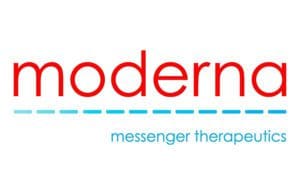
Moderna Logo (PRNewsFoto/Moderna Therapeutics)
AstraZeneca (LON:AZN) inadvertently discovered halving the first dose of its COVID-19 vaccine could boost its efficacy.
Researchers at the National Institutes of Health (NIH) and Moderna (NSDQ:MRNA) are examining vaccine data to determine whether they can halve the 100-microgram dose to vaccinate twice as many people.
Some data from Moderna’s clinical trial support that possibility, according to Moncef Slaoui, head of Operation Warp Speed.
“We know [a half dose] induces identical immune response” to the recommended dose in individuals aged 18 to 55, Slaoui said on CBS’ “Face the Nation.”
Slaoui’s comment referenced a Phase 2 clinical trial designed to test for an immune response rather than vaccine efficacy.
To date, about 4.8 million Americans have received COVID-19 vaccines. States have received an additional 13 million doses, according to the CDC.
The U.S. had aimed to vaccinate 20 million people by the end of December.
U.S. researchers have long planned to test the effectiveness of lower vaccine doses, Dr. John Mascola, a director of the Vaccine Research Center within the NIH, told the New York Times.
Determining whether 50-microgram doses of Moderna’s COVID-19 vaccine is equally effective to full doses will require further research and FDA support.
To date, FDA has disputed the idea in a statement, stressing that the notion of halving vaccine doses is “not rooted solidly in the available evidence.”
The agency does recommend further assessing different vaccine treatment schemes in clinical trials.